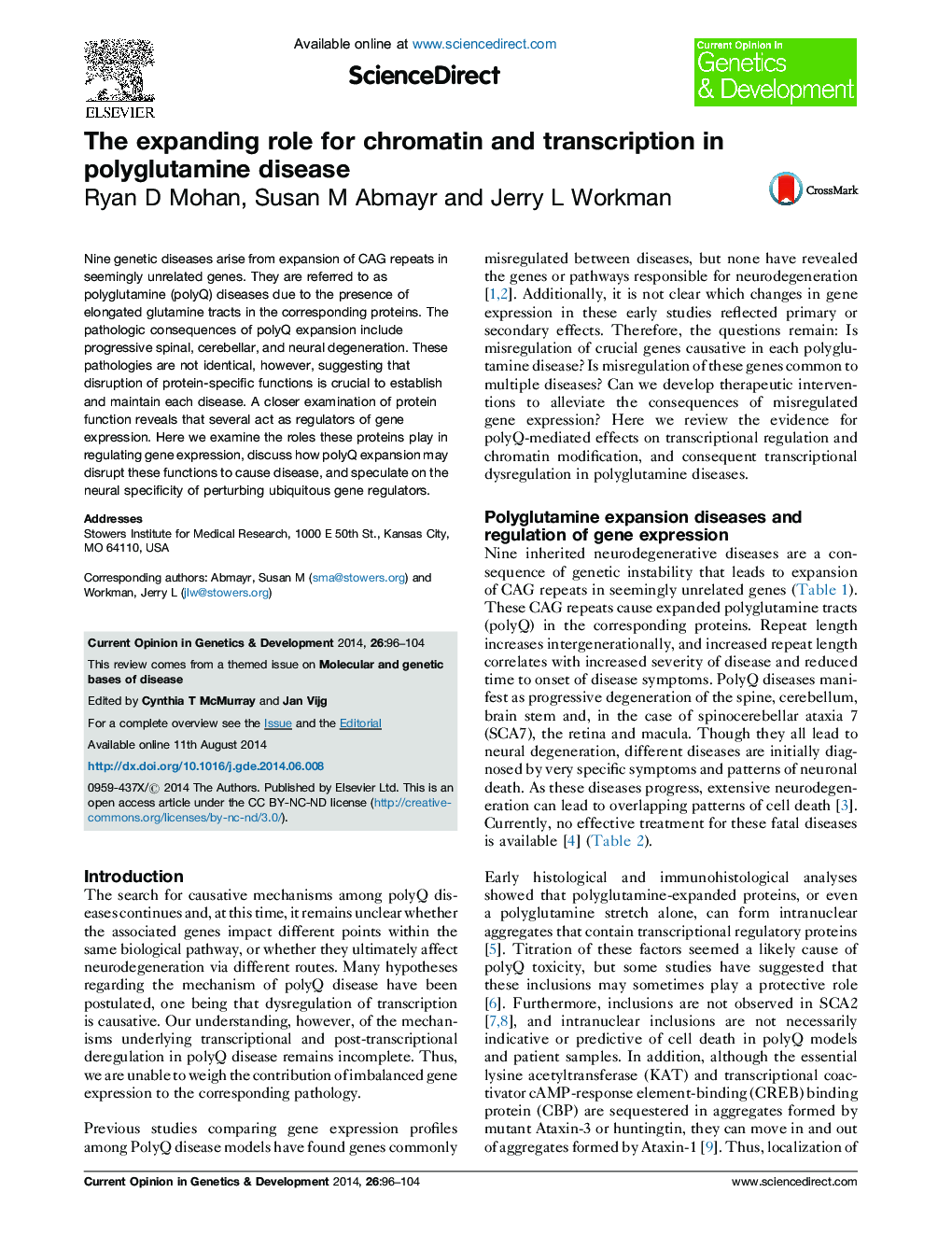| Article ID | Journal | Published Year | Pages | File Type |
|---|---|---|---|---|
| 5893361 | Current Opinion in Genetics & Development | 2014 | 9 Pages |
Abstract
Nine genetic diseases arise from expansion of CAG repeats in seemingly unrelated genes. They are referred to as polyglutamine (polyQ) diseases due to the presence of elongated glutamine tracts in the corresponding proteins. The pathologic consequences of polyQ expansion include progressive spinal, cerebellar, and neural degeneration. These pathologies are not identical, however, suggesting that disruption of protein-specific functions is crucial to establish and maintain each disease. A closer examination of protein function reveals that several act as regulators of gene expression. Here we examine the roles these proteins play in regulating gene expression, discuss how polyQ expansion may disrupt these functions to cause disease, and speculate on the neural specificity of perturbing ubiquitous gene regulators.
Related Topics
Life Sciences
Biochemistry, Genetics and Molecular Biology
Developmental Biology
Authors
Ryan D Mohan, Susan M Abmayr, Jerry L Workman,
